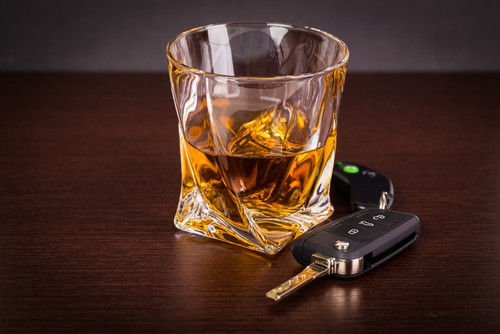
When calculating a driving while intoxicated (DWI) charge in Texas, any prior DWI charges will be taken into account and will subsequently increase the severity of penalties, fines, and offense levels of the charge. What class felony is DWI? The Texas Alcoholic Beverage Commission affirms that under the Texas State Penal Code, punishments can range from a Class B misdemeanor to second- and first-degree felonies, depending on the facts of the case.
Being arrested for a DWI can have devastating consequences on your finances and personal life, both now and in the future. A DWI charge could also result in license suspension, steep fines, and possible jail time. You may want to retain a lawyer as soon as possible following an arrest for a DWI.
A DWI defense lawyer will be able to protect your rights and search for any discrepancies in your arrest, booking process, blood alcohol concentration (BAC) testing procedures and results, and statements collected as evidence against you. For instance, you may have earned false positive BAC readings, or the law enforcement officer who arrested you might have used faulty testing equipment or stopped you illegally.
Penalties You May Face for a DWI in Texas
Sec. 49.01.(2) of the Texas Penal Code defines driving while intoxicated as using or operating a motor vehicle in a public place and, “not having normal use of mental or physical faculties” due to the ingestion of a substance, which then renders the person incapable of operating the motor vehicle safely.
It is important to note, however, that anyone can be arrested for a DWI if they are impaired by drugs or alcohol—regardless of what the BAC reading is—as a police officer only requires “probable cause” for the arrest.
Below is an example of possible fines someone charged with a felony DWI may owe, along with typical penalties and offense levels for different types of DWI charges, in order of severity. It is, however, possible to be charged with more than one penalty (enhanced charges) at the same time, depending on the circumstances. According to the Texas Department of Transportation:
- 1st-Time DWI Offenders: Could have their driving license suspended for up to 12 months and a possible jail sentence of up to 6 months (fines can increase up to $2,000).
- 2nd-Time DWI Offenders: Could have to pay a maximum fine as high as $4,000, along with license suspension for up to 2 years, and a jail term of up to a maximum of 1 year.
- 3rd-Time DWI Offenders: Could face fines of up to $10,000 and between 2 and 10 years in prison, with a license suspension of up to 2 years (and a minimum suspension of 6 months).
- DWI With a Child Passenger: Driving while intoxicated with a minor in the vehicle (under 15 years old) is punishable by confinement to state jail for up to 2 years—maximum fines are $10,000 and one could face a license suspension of up to 6 months.
Regardless of the charge you face, you have rights—including the right to fair representation. A lawyer can fight to protect your rights and can represent your interests in a court of law.
Contact the Law Offices of Randall B. Isenberg If You Face DWI Charges
If you or a loved one has been arrested or is facing DWI charges, and is concerned about what class felony is DWI, it is vital to act quickly. The sooner you call, the sooner we can get started on your case. You can never get your record sealed if you are convicted of a DWI after an accident. If you choose to represent yourself in cases like this, you take your future, your life, and your chance at employment into your hands.
Attorney Randy Isenberg is a board-certified former Senior Chief Felony Prosecutor and State District Trial Judge, with 30 years of experience. He and his legal defense team at the Law Offices of Randall B. Isenberg are ready to hear your case today and discuss your options for moving forward. Call for a free case review at (214) 696-9253.
Our team is ready to hear your story today. We can answer any questions you have and we are prepared to update you at every point of the case. Reach out to us to learn more.










